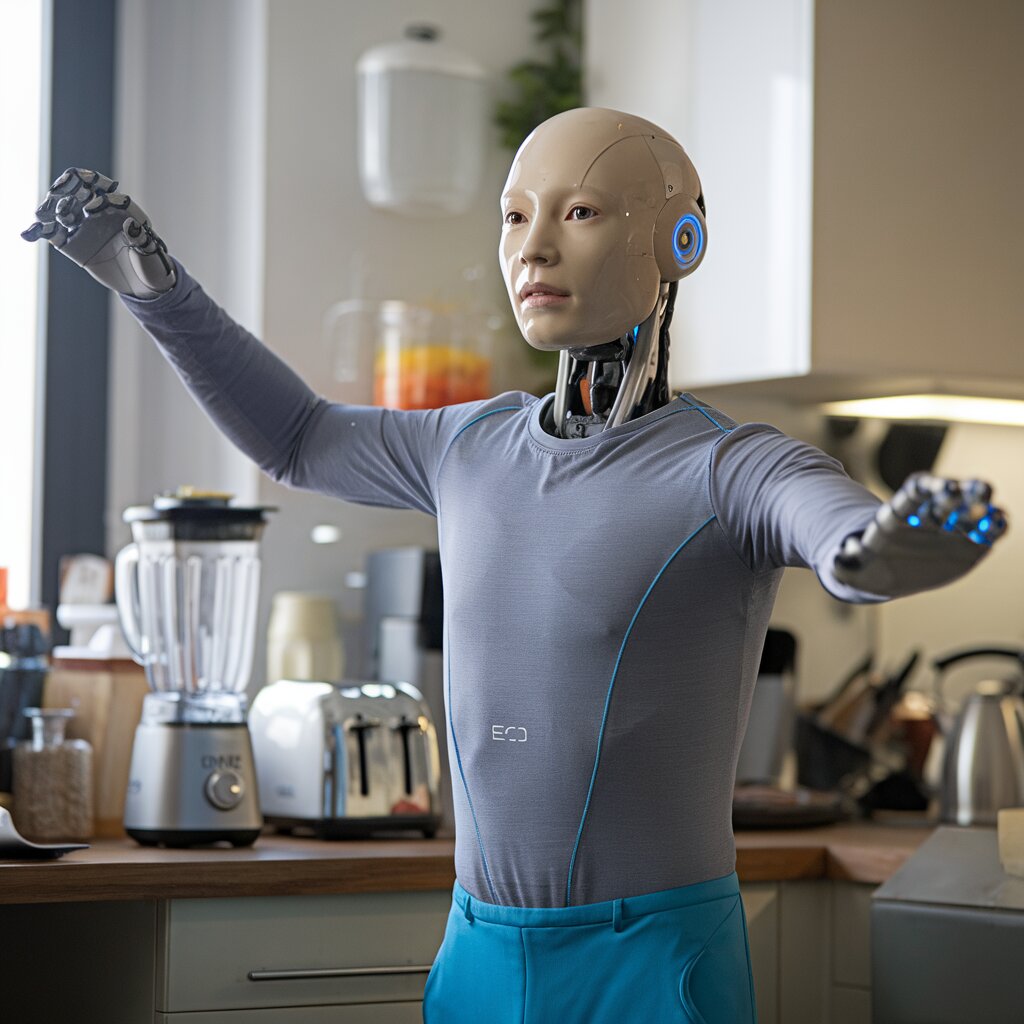Norwegian robotics firm X1 is breaking new ground with the at-home testing of its advanced bipedal humanoid robot, NEO Beta. The company has marked a significant milestone by deploying a select number of these intelligent machines into carefully chosen homes for real-world assessment. As part of its mission to revolutionize household assistance, X1 aims to gather invaluable feedback that could lead to wider adoption of robot helpers.
The unveiling of the NEO Beta represents a noteworthy advancement in the field of humanoid robotics, which has seen rapid progress in recent years. Notably, Tesla’s Optimus bots have demonstrated their prowess in undertaking practical tasks at workplaces, while Unitree’s G1 boasts ‘unlimited movement ability’ with flexible 360-degree joints capable of collapsing when necessary. It’s in this context of brisk innovation that X1 steps forward with its latest trial.
A recently released clip showcases NEO Beta’s functionality, highlighting its user-friendly disposition. In the video, the robot is seen handing a backpack to its human partner, who is preparing to leave the house. The scene takes an endearing twist when the robot seemingly calls the person back for a hug, a gesture that may be perceived as heartwarming or, to some, slightly reminiscent of a “Black Mirror” episode.
X1 is acutely aware that integrating robots into the home environment might raise safety concerns. Addressing these apprehensions head-on, X1 CEO Bernt Børnich emphasized the company’s commitment to safety. “Safety is the cornerstone that allows us to confidently introduce NEO Beta into homes, where it will gather essential feedback and demonstrate its capabilities in real-world settings,” Børnich stated. He assured that the current deployment is strictly for research and development, with each unit contributing valuable data that will further refine the robot’s operational safety and utility.
The design and production strategy for NEO Beta aims for scalability, with manufacturing concentrated in X1’s factory in Moss, Norway. The ultimate vision for the company is ambitious: X1 aims to create an ‘abundant supply of physical labor through safe, intelligent humanoids that work alongside people.’ As part of this goal, testing NEO Beta in a variety of domestic settings is essential to ensure its adaptability to a wide range of tasks.
As the technology evolves, the prospect of owning such a helpful household companion becomes increasingly plausible. The ongoing trials of NEO Beta are a crucial step towards making intelligent humanoid robots a common fixture in our daily lives, ready to assist with household chores and perhaps, as hinted by their friendly gestures, offer a touch of companionship.


